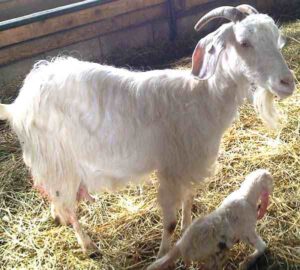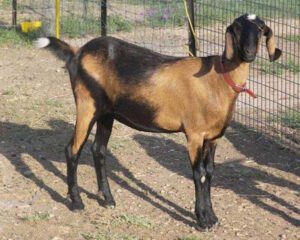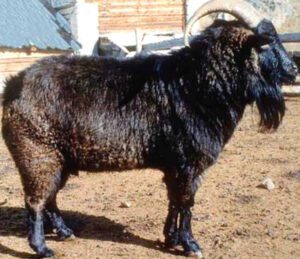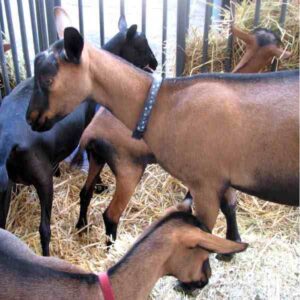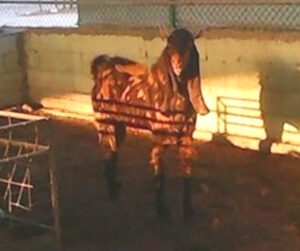Pygmy goat is one of the hardiest and productive domestic goat breeds. They are very suitable as pet and also for commercial production.
Pygmy goat originated from the Cameroon Valley of West Africa. They generally raised for their meat production. But also works as milk producer. Some people raise them as pet as a hobby.
They become very hardy, good-nature, alert and animated. They are also a good responsive pet, ecologically effective browsers and a cooperative milk provider.
They are considered as an asset in a wide variety of settings. They can adopt themselves with almost all types of climate/weather.
Pygmy goats were first imported into the United States in 1959, and now are being raised as pets and laboratory animals. Characteristics, feeding, breeding, housing and care of pygmy goat are described below.
Pygmy Goat Characteristics
Pygmy goats are one of the smallest domestic goat breeds in the world. They are cute, cuddly, and make great pets for both children and adults.
However, before you bring one home, it is important to know their characteristics and what makes them unique. Here we are going to share some of the physical and behavioral traits of Pygmy goats, their history, and some tips on caring for them.
Pygmy goats have a compact and muscular build, with short legs and a rounded body. They typically weigh between 55-75 pounds and stand at around 16-23 inches tall. Their coats come in a variety of colors such as caramel, black, brown, and grey.
One of the most notable features of Pygmy goats is their oversized head, which gives them a distinct appearance. They have long, floppy ears that can sometimes droop below their chin, and their eyes are large and expressive.
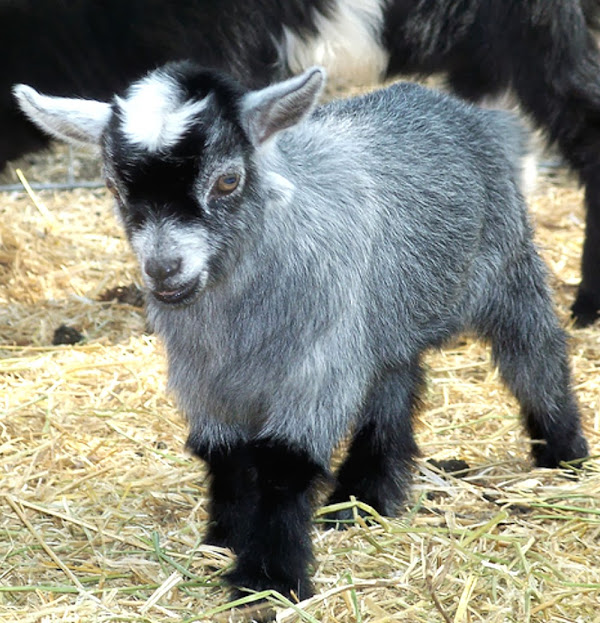
Feeding
Goats are ruminant animals. They remains healthy and productive only if they are feed properly according to their sex, age and individual conditions. Generally, pygmy goat demands less variety of feed.
They can live healthy and good life by consuming simply fine green grasses, hay and some grain or corns each day. It will be great if you can make a browsing place for them. They will consume grasses or leaves from there. But don’t stop feeding them some hay.
Always try to feed them some hay regularly. In the case of supplementary feed try to maintain the balanced ratio of protein, phosphorus, calcium and magnesium.
The male goats for breeding purpose needs some special feed and care because they are burning up a lot of fuel. Try to feed them two cups of alfalfa pellets daily depending on their body size and activity.
Be careful feeding the female goats. Don’t feed them excessive fatty feed. Because over-conditioned (fat) female goats faces difficulties in getting pregnant and delivering kids.
The feed for pregnant goat should contain approximately 16% of protein. Milking goats requires two times more food than pregnant goat.
In accordance with providing fresh quality good feed they also needs to provide sufficient amount of fresh and clean water regularly. Always keep sufficient clean and fresh water in front of them and inside their house.
Breeding
Always keep a record of the breeding campaign of your pygmy goat. Try to keep the goats for breeding purpose separated from other goats.
In proper care and management a female goat become suitable for the breeding purpose at their age of 7-10 months. The gestation period of pygmy goat is from 145-155 days. Keep them in separate place and take special care.
Housing
A good designed and facilitated goat housing keeps the goat safe and diseases free. In accordance with a good house, make a fence around your farm area. Try to provide for shade in the summer and rainy season.
They always need and like dry places for sleeping, eating and exercising. Northeast faced three sided shed is very suitable for moderate climates. Make adequate drainage inside the house.
Uses
Pygmy is a multi-purpose goat breed. It is good for meat and milk production. And they are also good for raising pets.
Special Notes
Pygmy goats are friendly and social creatures, making them excellent pets. They are known for their playful and mischievous nature, always finding ways to entertain themselves and their owners. They love to run and jump, climb trees and rocks, and explore their surroundings.
Despite their small size, Pygmy goats are also surprisingly strong. They have powerful legs and can easily jump over obstacles or push open gates if they want to go somewhere.
These goats are herd animals and thrive in groups. They enjoy interacting with other goats and will even form close bonds with their human caregivers. Pygmy goats are vocal creatures and will often bleat or make other noises to communicate with their companions.
Review full breed profile of the Pygmy goat in the table below.
| Breed Name | Pygmy | |
| Other Name | None | |
| Breed Purpose | Multi-purpose | |
| Breed Size | Small | |
| Buck | About 27 to 39 kg | |
| Doe | About 24 to 34 kg | |
| Horns | Yes | |
| Climate Tolerance | All Climates | |
| Coat Color | Many color variations | |
| Good for Stall Fed | Not sure | |
| Rarity | Common | |
| Country/Place of Origin | West Africa |

